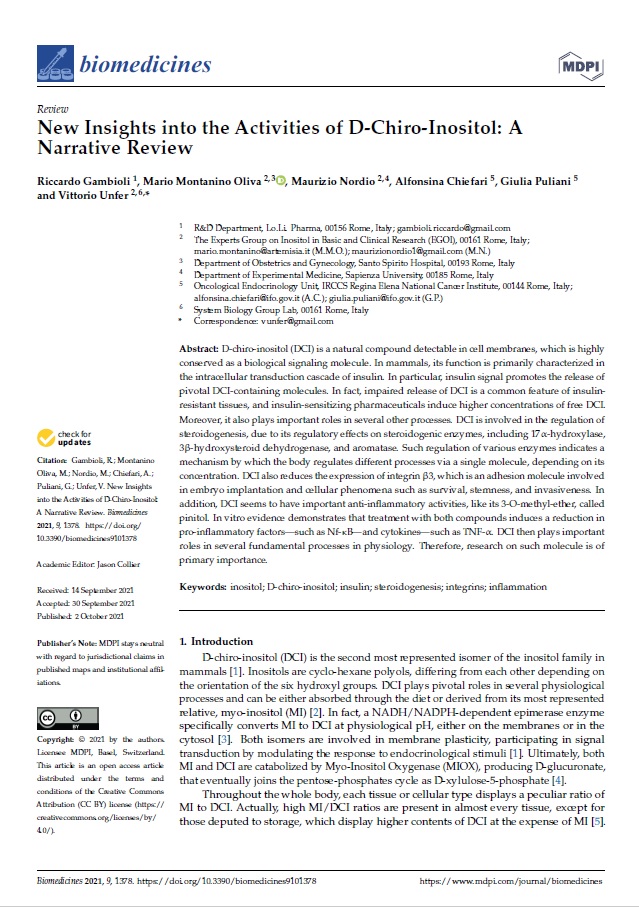Authors:
Riccardo Gambioli, Mario Montanino Oliva, Maurizio Nordio, Alfonsina Chiefari, Giulia Puliani and Vittorio Unfer
D-chiro-inositol (DCI) is a natural compound detectable in cell membranes, which is highly conserved as a biological signaling molecule. In mammals, its function is primarily characterized in the intracellular transduction cascade of insulin. In particular, insulin signal promotes the release of pivotal DCI-containing molecules. In fact, impaired release of DCI is a common feature of insulin-resistant tissues, and insulin-sensitizing pharmaceuticals induce higher concentrations of free DCI. Moreover, it also plays important roles in several other processes. DCI is involved in the regulation of steroidogenesis, due to its regulatory effects on steroidogenic enzymes, including 17α-hydroxylase, 3β-hydroxysteroid dehydrogenase, and aromatase. Such regulation of various enzymes indicates a mechanism by which the body regulates different processes via a single molecule, depending on its concentration. DCI also reduces the expression of integrin β3, which is an adhesion molecule involved in embryo implantation and cellular phenomena such as survival, stemness, and invasiveness. In addition, DCI seems to have important anti-inflammatory activities, like its 3-O-methyl-ether, called pinitol. In vitro evidence demonstrates that treatment with both compounds induces a reduction in pro-inflammatory factors—such as Nf-κB—and cytokines—such as TNF-α. DCI then plays important roles in several fundamental processes in physiology. Therefore, research on such molecule is of primary importance.

